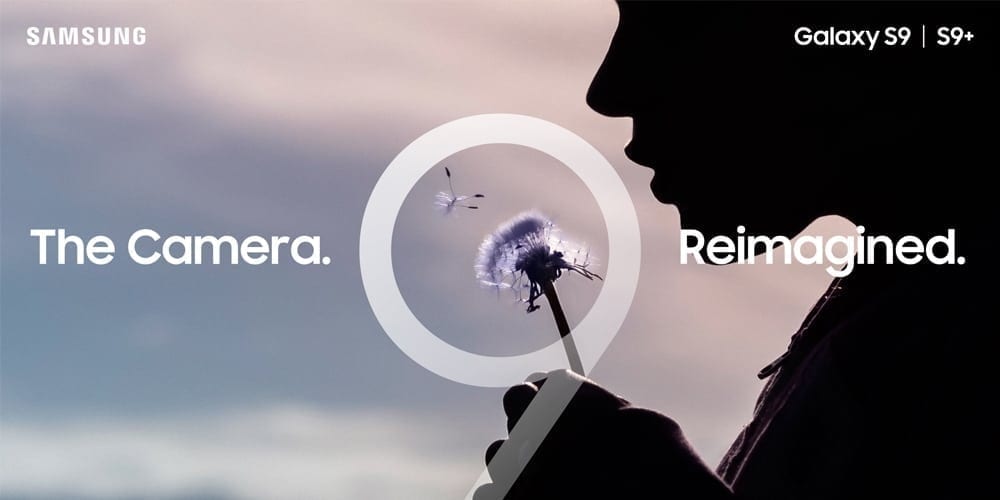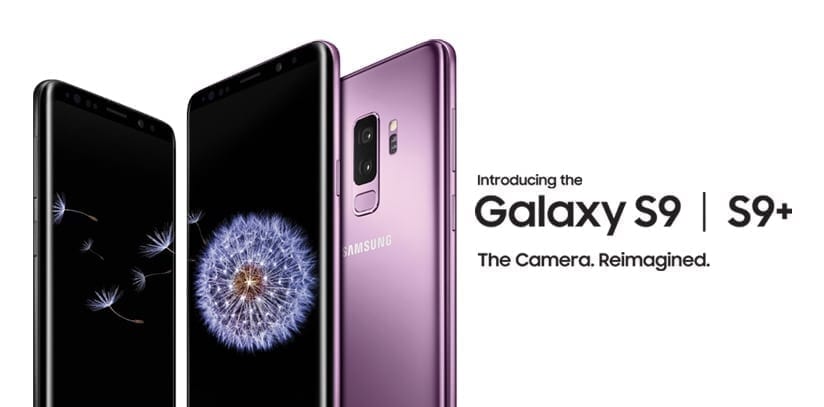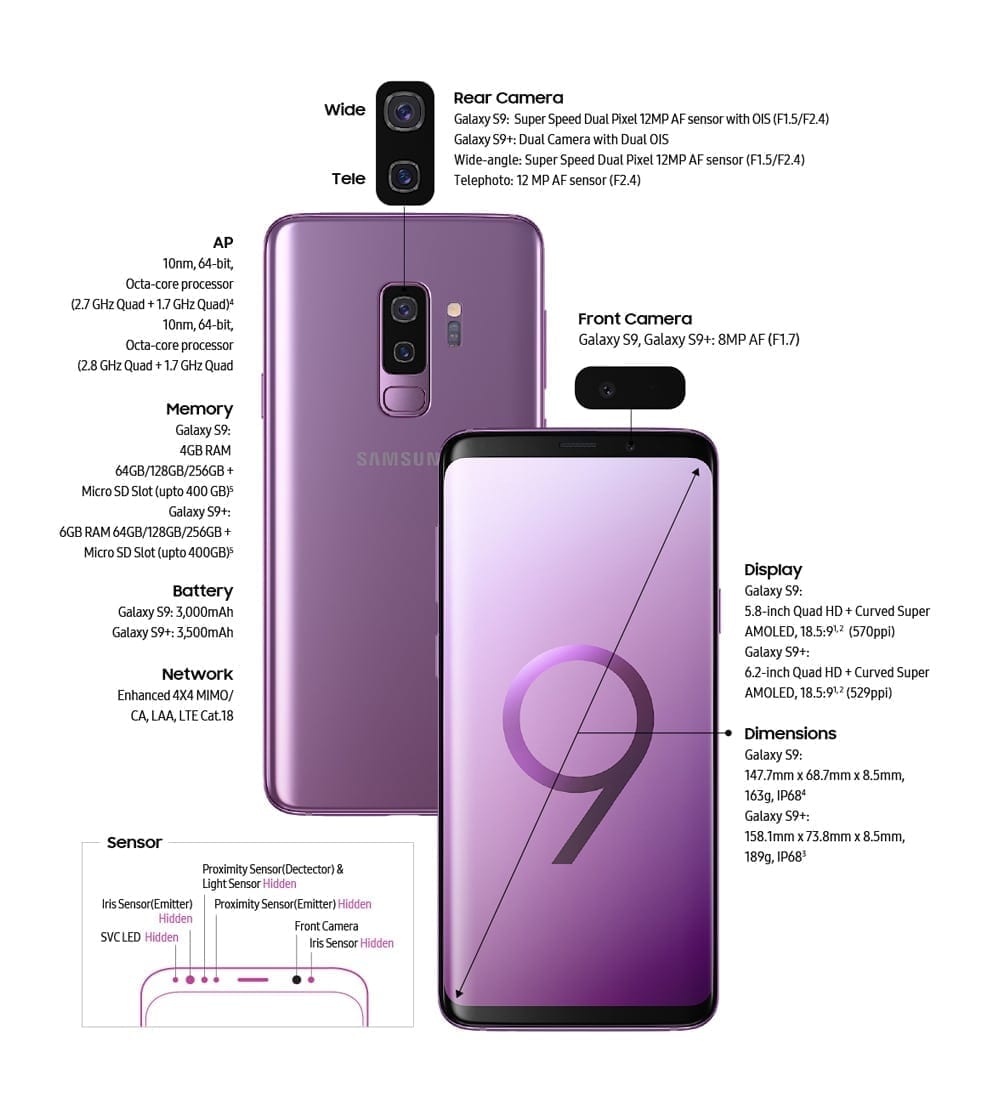Over at the Mobile World Congress held in Barcelona, Samsung Electronics introduced the new Samsung Galaxy S9 and S9+. Made for an age in which consumers increasingly communicate and express themselves more with images, videos and emojis, the phones drive innovation with Samsung’s advanced camera. Redesigned with a new Dual Aperture lens that powers an innovative low light camera, Super Slow-mo video capabilities and personalized AR Emoji, the Galaxy S9 and S9+ ensure users make their every day epic.
The Galaxy S9 and S9+ will be available starting in March 16, 2018 in select markets and will be offered in Midnight Black, Titanium Gray, Coral Blue and a new hue, Lilac Purple.
Other than taking pictures, today’s cameras are also for connecting and communicating. Consumers want a smartphone camera with state-of-the-art technology, so they can express themselves with high-quality images to tell their unique story. The Galaxy S9 and S9+ cameras are built with these in mind, with a Super Speed Dual Pixel sensor with dedicated processing power and memory to take amazing shots with high photo quality.

The Galaxy S9 and S9+’s camera features include:
Super Slow-mo: Make everyday moments epic with dynamic, slow-motion video that captures 960 frames per second. The Galaxy S9 and S9+ also offer automatic Motion Detection, an intelligent feature that detects movement in the frame and automatically begins to record – all users have to do is set up the shot. After capturing the Super Slow-mo video, users can select background music from 35 different options or add a tune from their favorite playlist. Users can also easily create, edit and share GIF files with a simple tap in three playful styles of looping to watch the action over and over again.
Low Light Camera: Good lighting is the secret to any great photo. But often, photos are taken in less-than-ideal lighting conditions and most smartphone cameras have a fixed aperture that can’t adjust to low or bright lighting environments resulting in grainy or washed out pictures. Similar to the way the iris of a human eye expands and contracts, Samsung’s Dual Aperture2 (F1.5 / F2.4) automatically lets in more light when it’s dark and less light when it’s too bright, taking photos that are crisp and clear.
AR Emoji: Samsung lets users create an emoji that looks, sounds and acts like them. AR Emoji uses a data-based machine learning algorithm, which analyzes a 2D image of the user and maps out more than 100 facial features to create a 3D model that reflects and imitates expressions, like winks and nods, for true personalization. AR Emoji shares users’ real-life emotions not only in video but also with a range of stickers and uses a standard AGIF file format so users can share their emojis across most messaging platforms.
Bixby: Samsung’s intelligence platform, integrated into the camera, uses augmented reality and deep learning technologies to provide helpful details about the surroundings. With real-time object detection and recognition, Bixby instantly generates information directly on top of the image that the camera is pointing at. Users can translate foreign languages and currency in real time with Live Translation, learn about their surroundings, purchase products seen in the real world and track calories throughout the day.
Smartphones are often our go-to choice for entertainment, which is why Samsung created a device that offers premium sound experiences with stereo speakers tuned by AKG. Whether users are watching their favorite movie or streaming their favorite artist’s latest album, sounds are clear, crisp and rich in quality. The Galaxy S9 and S9+ also support Dolby Atmos, giving the effect of 360-degree immersive sound. Perfect for audiophiles!
The Galaxy S9 and S9+ audio experience is complemented by Samsung’s revolutionary Infinity Display. First introduced on the Galaxy S8, the bold, bright Super AMOLED Infinity Display blends right into the phone with virtually no distracting notches. With adaptive contrast enhancement, users can use their device as per normal even under direct sunlight.








